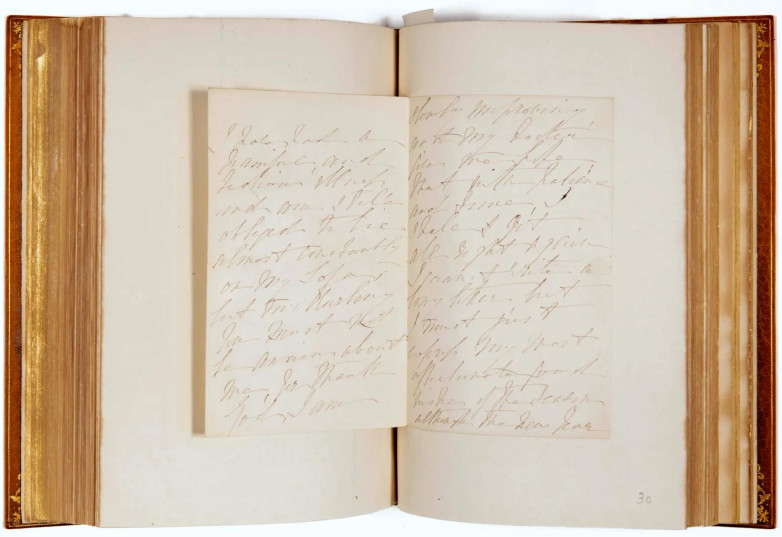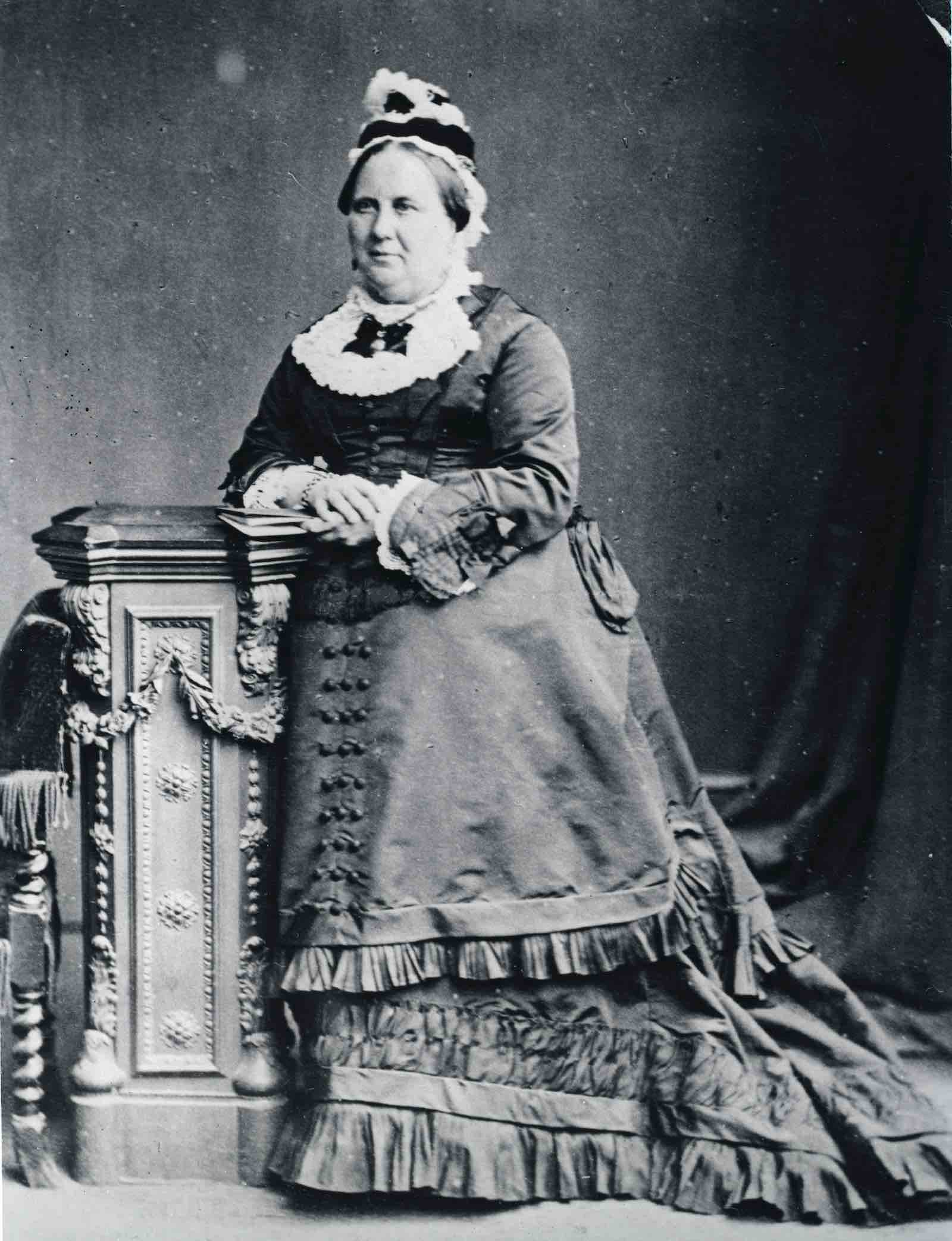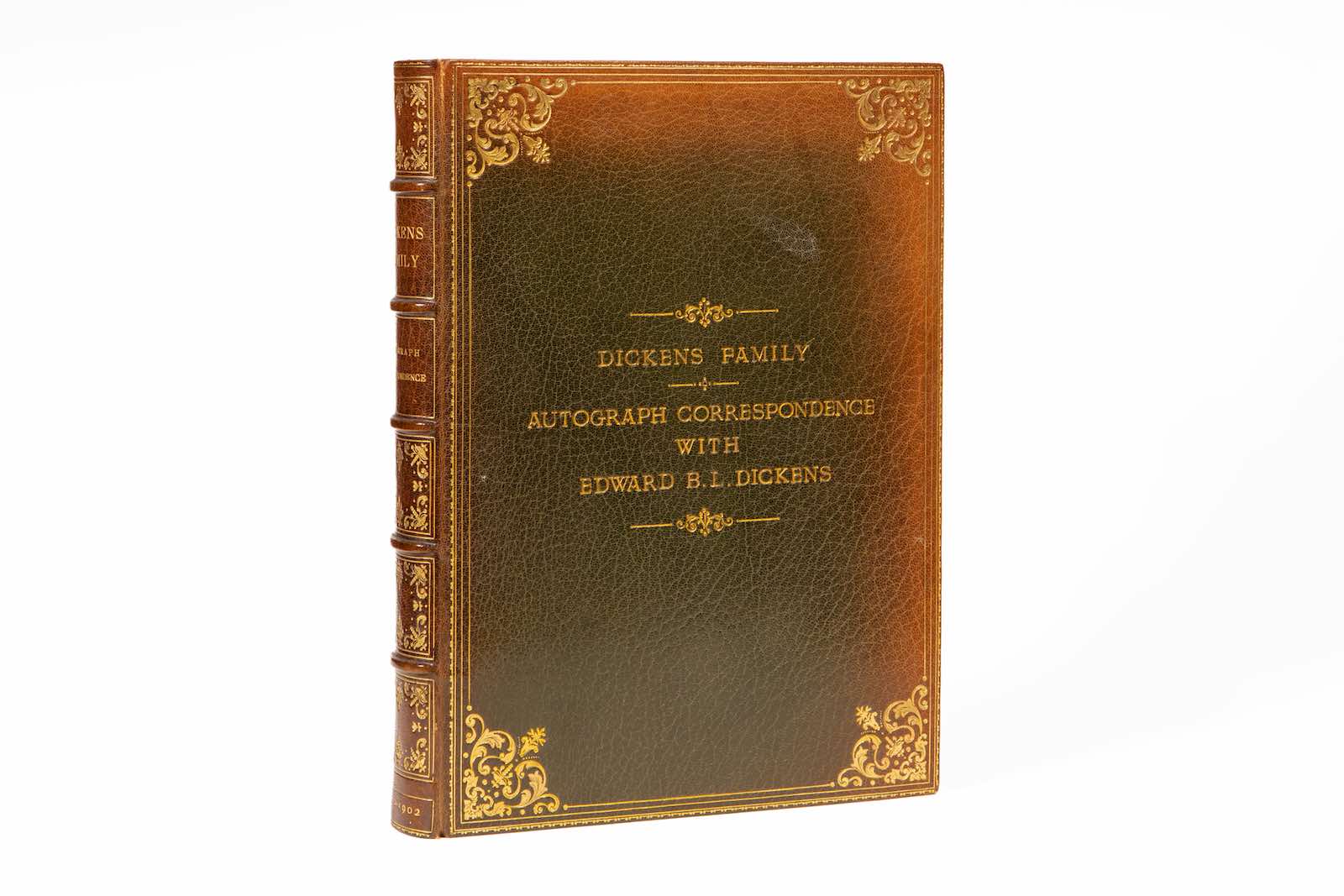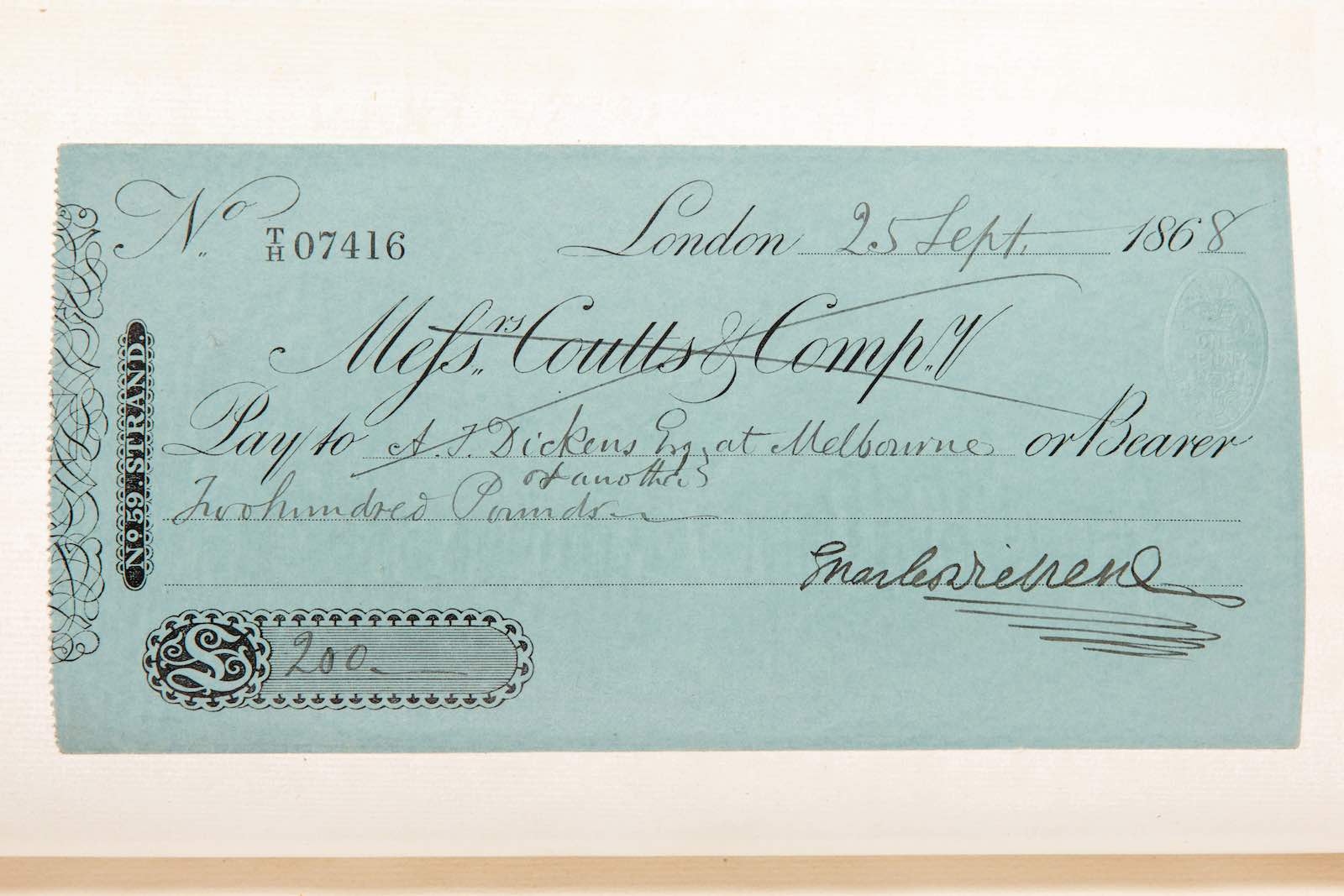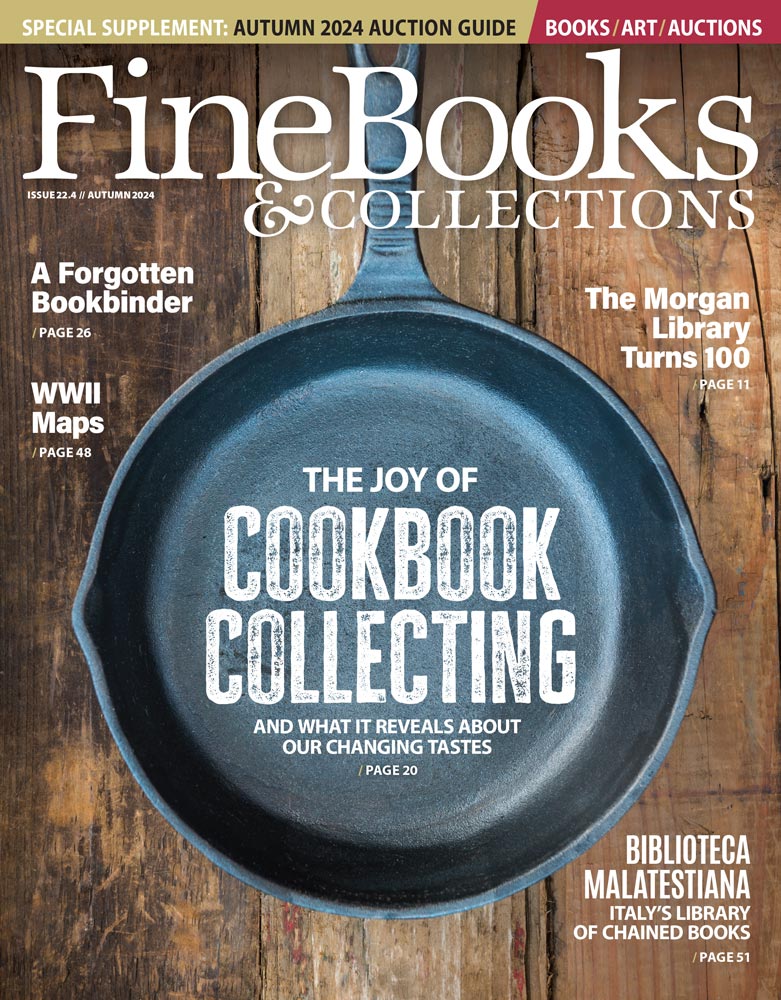On February 19, 1873, Catherine wrote: “I miss dear Charley, Bessie and the children more and more and I am almost selfish enough to wish sometimes they had never gone to Gad’s Hill to live altogether. Of course I can go there, whenever I feel inclined, but that is not so comfortable as having them so near as Gloucester Road. It is not however right in me to repine at this separation, as I know it is a great advantage to them all, especially the children, to live in the country, and it is very delightful for me to see them so well and flourishing down there when I go to visit.”
And then on August 3, 1871, Catherine wrote: “How I envy anyone who has seen either of you [Plorn and his brother Alfred]. I am so delighted to have your Photo. I had also two of Alfred, he sent me.”
Emma Harper, Curator at the Charles Dickens Museum, said: “This fascinating collection destroys the image that Charles Dickens tried to create when he separated from Catherine Dickens in 1858, alleging that she was an unfit wife and mother. The unpublished letters give voice to Catherine Dickens, highlighting her caring nature and showing her clear love of her children. The whole collection provides a huge insight into the life of the youngest son of Charles and Catherine Dickens and his relationships with his mother, aunt and sisters.”
Though christened Edward Bulwer Lytton Dickens, Dickens' youngest son soon became known as Plorn, short for ‘Plornishmaroontigoonter’ - there is no definitive reason for this remarkable nickname which stuck. Plorn left England for Australia in September 1868, joining his brother Alfred (1845-1912), who was already established there as a sheep farmer (the cheque from Dickens included among the letters was a gift to Plorn to help to get him started in Australia). In 1890, Plorn represented Wilcannia town in the New South Wales Parliament, but resigned shortly afterwards. He was appointed Rabbit Inspector for the Government of New South Wales, then Officer of the Lands Department in charge of the Moree district, where he died, aged 49, after an illness of some months.
The collection also shows the affectionate, but sometimes strained, relationships between the Dickens siblings, in one case caused by wrangling over the disposal of Charles Dickens’s chalet at Gad’s Hill. On July 12, 1871, the eldest daughter, Mamie Dickens (1838-1896), wrote to Plorn about their brother Francis (1844-1886). “Yes, we looked forward with great pleasure to seeing Franky again, but his visit has been a great disappointment as far as we are concerned, for we have seen hardly anything of him. Ever since the business of the Chalet he has never been near us. I have written to him constantly asking him to come here. We, as well as Kitty, have done everything we possibly could to make him welcome. However, we lead such a quiet life now, that I think he found us dull. He was always a queer fellow."
In the same letter, Mamie Dickens writes to Plorn about their brother Sydney (1847-1872), “As for Sydney, the less said about him the better. Our dear Father had many a sad experience of him, and was so utterly tired and worn out by his extravagances and follies that he had forbidden him ever to come home again….I think him worthless and heartless. I can only pray that he may not come to utter ruin. In the matter of Aunt Letitia he has behaved simply most disgracefully, like a common swindler."
The collection includes several reflections on Charles Dickens by his family. On August 4, 1874, Catherine’s sister and Charles’s housekeeper, Georgina Hogarth (1827-1917) wrote: “When I had your letter the other day I could not help thinking how pleased your Father would have been with all your plans, and how exactly the sort of businesslike, energetic manner in which you are carrying out your future life would have been the thing he would wish for you! I am quite sure you keep him in your mind in all you do!”
There are also fascinating comments about some of the talking points of the later years of the 19th century. On November 24, 1871, Catherine wrote: “There is not much going on in London at present. The Tichborne Trial drags on its wearisome course. Alfred says in his letter that in Australia Sir Roger is considered an Imposter.” On March 16, 1874, Catherine’s sister Georgina Hogarth wrote: “So the great Tichborne Trial is over at last! And Arthur Orten is hand and foot in gaol for 14 years. I don’t think it is much for such a scoundrel. Mamie and I were at the Trial on the last day, the day the verdict was given. The Chief Justice sent Mamie tickets for the Gallery. It was tremendously interesting. He, Orten, did not seem to care much.”
Meanwhile on July 10, 1873, Catherine wrote: “London has been in such a state of excitement over the visit of the Shah of Persia. I saw him the day he went in State to the Crystal Palace, and cannot say I thought much of him, with the exception of his diamonds, with which he was covered!”
On July 9, 1874, she also mentioned the appearance of Coggia’s Comet, which Plorn may have seen later as it crossed into the southern hemisphere: “Last night we had a splendid sight of the comet just over this house. It must I suppose be a large one, from all I read about it in the papers and I presume the days will be hotter and hotter until it takes its departure from our latitudes. On the 22nd of this month it is to be at its nearest to the earth.”

